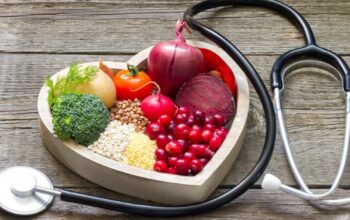The liver is one of the most vital organs in the human body, playing a crucial role in maintaining overall health balance. Located in the upper right part of the abdomen, just below the diaphragm, the liver has a reddish-brown color and weighs approximately 1.5 kg in adults. Although it may not receive as much attention as the heart or brain, the liver’s functions are indispensable, as many essential processes in the body rely on the liver’s optimal performance. Here are some of the liver’s primary functions:
1. Detoxification of Toxins
The liver acts as the body’s main filter, removing toxins from the blood. Harmful substances like alcohol, drugs, and toxins from food are processed by the liver to prevent them from harming the body. These toxins are converted into safer forms and then eliminated from the body through urine or feces.
2. Production of Bile
The liver produces bile, a fluid stored in the gallbladder and released into the small intestine when needed. Bile aids in digestion, particularly in breaking down and absorbing fats and fat-soluble vitamins such as A, D, E, and K.
3. Metabolism of Carbohydrates, Fats, and Proteins
The liver plays a central role in the metabolism of macronutrients. It converts glucose into glycogen for storage and uses it when the body needs energy. Additionally, the liver breaks down fats into fatty acids and produces cholesterol necessary for building cell membranes and hormones. The liver also processes proteins, aiding in the synthesis of amino acids used for tissue repair and growth.
4. Storage of Vitamins and Minerals
The liver serves as the primary storage site for several essential vitamins and minerals, including vitamins A, D, E, K, and B12, as well as iron and copper. These nutrients can be stored in the liver and released into the bloodstream as needed by the body.
5. Regulation of Hormone Balance
The liver helps regulate hormone levels in the body by breaking down excess hormones and ensuring proper hormone balance. This is crucial for maintaining a healthy endocrine system.
6. Production of Blood Proteins
The liver is also responsible for producing several important blood proteins, including albumin and blood clotting factors. Albumin helps maintain osmotic pressure and fluid distribution in the body, while clotting factors are necessary for wound healing.
7. Supporting the Immune System
The liver contains a large number of immune cells that help protect the body from infections by detecting and destroying pathogens such as bacteria, viruses, and parasites that enter through the digestive tract.
The Importance of Maintaining Liver Health
Given the many critical functions performed by the liver, maintaining liver health is crucial. Liver diseases such as hepatitis, cirrhosis, and fatty liver disease can impair liver function and have detrimental effects on overall health. To keep the liver healthy, it is important to follow a balanced diet, avoid excessive alcohol consumption, maintain an ideal body weight, and undergo regular health check-ups.
By understanding the liver’s functions and the importance of preserving its health, we can take proactive steps to support this vital organ in carrying out its tasks effectively, ensuring our bodies function optimally.
















